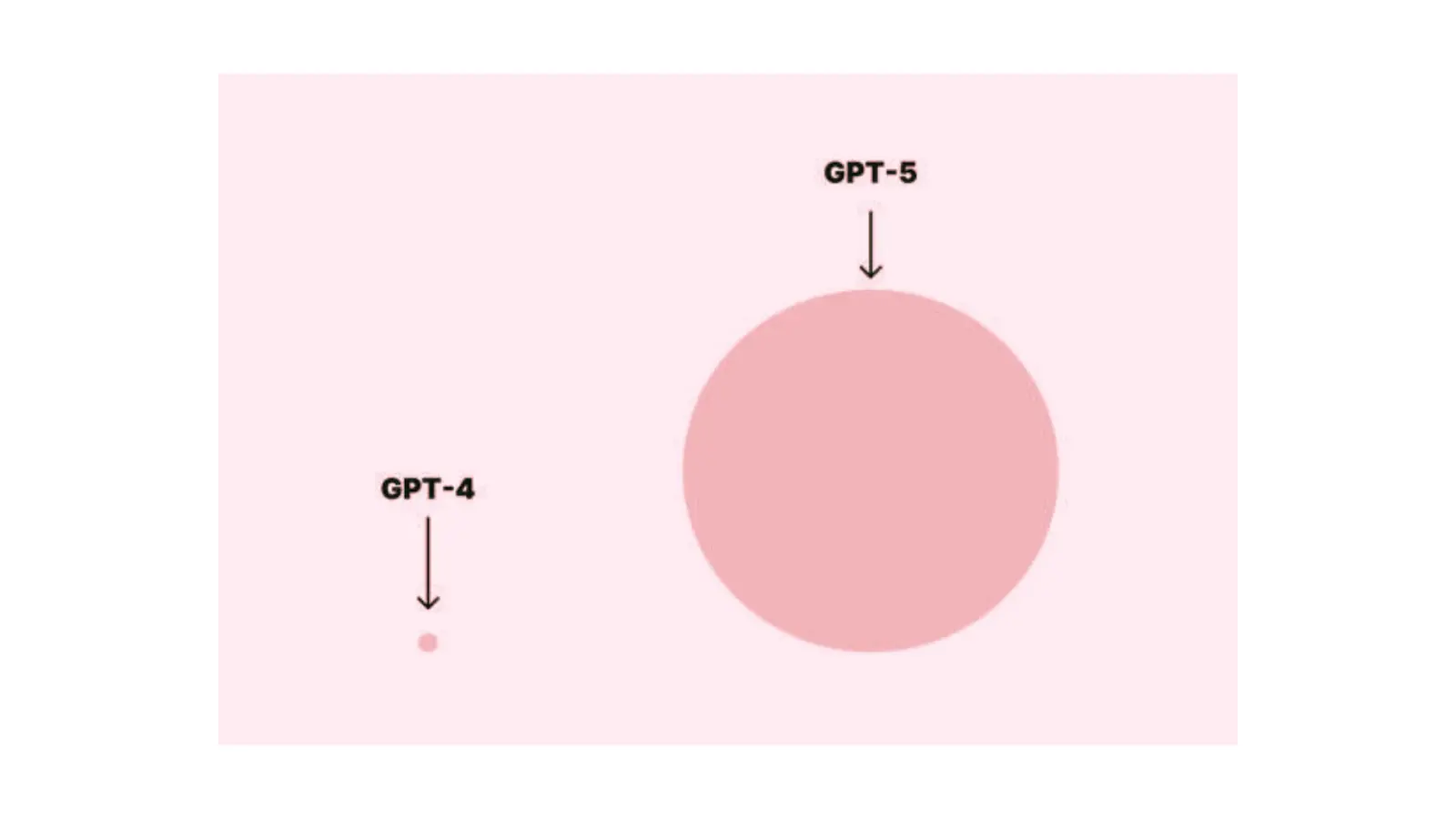Did you know that over 300 million people use ChatGPT every week? This highlights how AI has evolved and become widely accessible. But AI like ChatGPT belongs to a category called Frontier AI—the next generation of highly advanced models.
So, what exactly is Frontier AI? In this post, you'll learn about its definition, benefits, and impact.
What is Frontier AI?
The term Frontier AI was coined by the UK government in mid-2023, where they defined it as a highly capable general-purpose model that can perform a wide range of tasks and match or exceed the capabilities of today’s most advanced models.
At the time, they referred “today’s most advanced models” as narrow models—AI developed for a particular task or those that couldn’t perform a wide range of tasks. Additionally, they referenced Frontier AI as large language models such as those underlying ChatGPT and Claude.
When ChatGPT came out, we were all amazed that it could answer questions across different domains and industries and provide responses.
Given this, Frontier AI can be defined as a highly advanced model capable of performing a wide range of tasks across different industries. Additionally, it pushes the limits of today’s most advanced models.
Evolving Definition of "Frontier AI"
Even though the term Frontier AI has been defined by the UK government, it remains inherently dynamic and speculative as AI is advancing at a fast pace.
Today's most advanced models, considered Frontier AI, may become obsolete as even more advanced models emerge. In short, the term Frontier AI will continue to be speculative in the future.
Characteristics of Frontier AI
1. Advanced Capabilities Compared to Today’s AI: These models often surpass the capabilities of current AI systems across a wide range of tasks, thereby depicting state-of-the-art proficiency.
2. Multimodal Capabilities: A core characteristic of frontier AI is the ability to work with different forms of data, including videos, audio, text, and images.
3. Generalization Across Different Domains: Frontier AI can perform a wide range of tasks across different domains, such as health, education, and business, without the need for specific adaptation to the target domain.
4. Agentic Ability: Frontier AI can perform tasks on its own without/minimal guidance on how to proceed.
5. Potential Risks: Due to their advanced capabilities, these models could pose significant risks if misused, including threats to public safety and global security.
Benefits of Frontier AI
1. Education Advancements: Frontier AI can assist educators and teachers by automating administrative tasks, allowing them to focus more on delivering knowledge and engaging with students. Furthermore, it can offer a personalized learning experience tailored to individual student needs and learning styles. Since different students have unique ways of learning and understanding, it can adapt learning to unique styles, reducing the burden on teachers.
2. Advancements in Healthcare: Frontier AI has the potential to revolutionize healthcare by enhancing diagnostic accuracy, personalizing treatment plans, and accelerating drug discovery. For instance, large language models can analyze vast amounts of medical literature and regulatory case studies to provide up-to-date information on treatment protocols, aiding healthcare professionals in making informed decisions and ensuring accurate compliance.
3. Scientific Research and Discovery: Frontier AI accelerates scientific research by analyzing large datasets, identifying patterns, and generating hypotheses. In fields such as genomics, climate science, and physics, it can process complex data—such as large unstructured text datasets—more quickly than traditional methods, leading to faster discoveries and innovations.
Potential Impacts of Frontier AI
1. Labor Market Disruption: One immediate impact of frontier AI is labor market disruption. When large language models, particularly ChatGPT, were first introduced, the labor market experienced a shake-up. Some jobs were displaced, while new technical roles, such as prompt engineers, emerged. The advent of new frontier AI models will continue to cause labor market disruptions. For instance, Mark Zuckerberg recently announced that Meta is developing an AI agents capable of performing the work of mid-level software engineers, which could lead to significant layoffs and increased unemployment.
2. Misinformation and Information Integrity: The ability of today's advanced AI models to generate human-like text, images, and videos raises serious concerns about the spread of misinformation and deepfakes. These technologies can be exploited to create convincing false information, undermining public trust in media and institutions. For example in July 2024, Elon Musk shared an Ad parody (deep fake) of Kamala Harris before the US elections in which experts argued that such deepfakes could mislead voters and undermine trust in democratic processes. This incident exemplifies the ethical and societal challenges posed by frontier AI technologies, particularly in the realm of misinformation and information integrity.
3. Concentration of Power: The development and control of frontier AI are often concentrated among a few large organizations, leading to potential power imbalances. This concentration can influence public interest, as decisions made by these entities may not always align with societal well-being and, in some cases, could be harmful.
4. Ethical and Societal Concerns: The deployment of frontier AI raises ethical questions, particularly regarding bias, privacy, and decision-making transparency. AI systems trained on biased data can unintentionally reinforce unfair stereotypes, leading to discrimination against certain groups. Additionally, the extensive data collection required for training these models poses privacy concerns, necessitating robust data protection measures. Ensuring transparency in AI decision-making processes is also crucial to maintain public trust and accountability.
Top Players in Building Frontier AI
Several leading organizations are at the forefront of developing frontier AI technologies. Some of these include:
OpenAI: An AI research and deployment company known for creating advanced language models. They developed GPT-3.5, which was deployed as ChatGPT in 2022, capable of generating human-like text. Building on this, they released different model such GPT-4, GPT-o1 further enhancing language understanding and generation capabilities.
Google Deepmind: An AI research lab owned by Google, recognized for significant advancements in AI. In December 2023, they introduced Gemini a multimodal large language model since then, they also released more advanced models like Veo2 that can generate realistic videos.
Meta AI: The AI research division of Meta (formerly Facebook), responsible for developing open-source models like the Llama series. These models have been utilized across various organizations to enhance their AI capabilities.
Anthropic: An AI safety and research company that emerged as a key player with its Claude series of AI models. In March 2024, they released Claude 3, which outperformed leading models from OpenAI and Google in benchmark tests.
DeepSeek: A recent entrant in the AI field, DeepSeek gained attention for developing its open-source reasoning model, DeepSeek-R1. This model provides responses comparable to other contemporary large language models but at a fraction of the training cost, challenging established AI companies and contributing to a competitive AI market.
XAI: This is an AI company founded by Elon Musk. The company has developed models such as Grok, an AI chatbot integrated into X (formerly Twitter), offering features like web search and conversation summarization
Nvidia: Nvidia is another top player in the Frontier AI ecosystem by providing advanced hardware essential for training and deploying AI models. The company's GPUs are widely used in AI research and development, making Nvidia a key enabler of advancements in frontier AI.
Difference Between Foundational Models and Frontier AI
Frontier AI and foundational models are closely related but distinct concepts in AI. Foundational models are large models trained on extensive datasets and adapted for various applications. They serve as a base for developing specialized AI systems.
Frontier AI, on the other hand, refers to the most advanced AI models or systems that push the boundaries of artificial intelligence. While some frontier AI systems utilize foundational models, not all foundational models qualify as frontier AI.
For example, foundational models like BERT (Bidirectional Encoder Representations from Transformers) and RoBERTa (Robustly Optimized BERT Approach) are trained on large datasets and serve as the basis for specialized tasks. However, they do not qualify as frontier AI because they offer limited capabilities compared to the cutting-edge models used in frontier AI systems.
Future of Frontier AI
The future of frontier AI is unpredictable as AI space is moving at a fast pace. It is unsure what these AI can do in the coming years. Nevertheless, there are sneak peeks and trends from the top players building AI, which include:
1. Autonomous AI Agents: Leading AI companies are developing autonomous programs, known as AI agents, capable of performing tasks and making decisions with minimal human intervention. These agents aim to enhance productivity by automating routine tasks and managing complex workflows. For example, OpenAI released an AI agent called Operator, which can go to the web to perform tasks on behalf of the user. As stated earlier, Mark announced that they are working on AI agents that will be able to perform junior-level tasks. Additionally, Anthropic announced that they will be launching Claude Code, an agentic tool for coding.
2. Pursuit for Artificial General Intelligence (AGI): Additionally, the pursuit for AGI remains a driving force too, with the potential for AI systems to achieve human-level cognitive abilities. It can be seen that Frontier AI is already inching towards the direction with features such as multimodal capabilities and advanced reasoning.
3. More Larger Model: In the future of Frontier AI, there are possibilities of even larger models than what we have currently. As Sam Altman, CEO of OpenAI, said in one of his tweets on X, he believes more compute is needed in training AI models now more than ever, which translates to larger models being shipped out as well.

Final Thoughts
In this post, you’ve learned about what Frontier AI is, the characteristics of Frontier AI, its benefits, and likewise its impact. Additionally, you’ve learned about the difference between Frontier AI and a closely related concept called foundation models.
While Frontier AI’s future looks revolutionary and promising, it also necessitates careful consideration of ethical, safety, and regulatory challenges to harness its full potential responsibly and ensure safety for the public interest.
Frequently Asked Questions
How does Generative AI differ from traditional AI models?
Generative AI differs from traditional AI models primarily in its ability to create new, original content based on learned data, rather than just analyzing data to make predictions or decisions. Traditional AI models, including many machine learning systems, focus on identifying patterns and making informed decisions based on statistical models. In contrast, generative AI excels at creative tasks like generating realistic images, composing music, or even writing natural language text, mimicking human intelligence in a way that traditional models do not.
Can AI generate entire websites?
Yes, AI-powered tools can generate entire websites based on user preferences and inputs, offering options for customization and optimization for factors like SEO and mobile-friendliness.
How is AI Content Moderation Regulated?
AI content moderation is subject to varying degrees of regulation depending on the region and specific legal frameworks in place. Regulations may address issues like user privacy, data protection, and freedom of expression. However, global standardization in regulation is still an evolving area.
What is AI for creating a website?
AI for creating a website refers to the use of artificial intelligence technologies to automate various aspects of the website development process, including design, content creation, and functionality.

Joel Olawanle is a Software Engineer and Technical Writer with over three years of experience helping companies communicate their products effectively through technical articles.
View all posts by Joel Olawanle



















